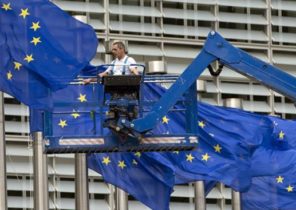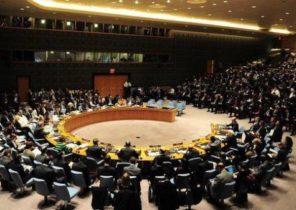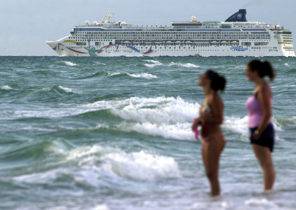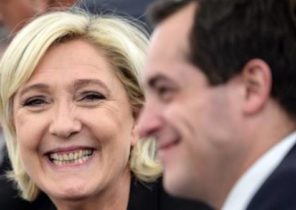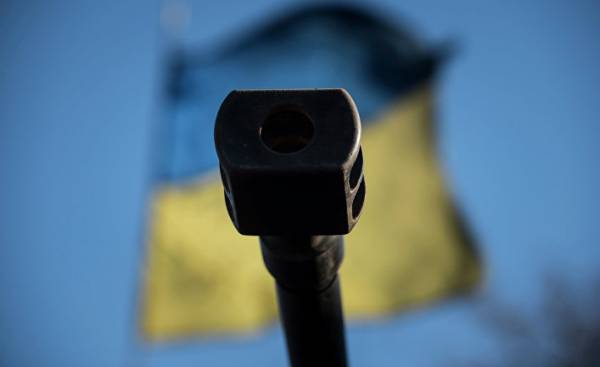
My blog about the difficult choice between dignity and generosity has been a mixed reaction in Ukraine. I usually don’t participate in “debriefing” after flights, but this time decided to make an exception.
This is because of two reasons: the topic seems sufficiently important, and the issue is very personal for me, because Ukraine is no stranger to me — this is my first homeland. And on a personal possible to write only intimate, so I apologize in advance to all those who opened this text in the expectation of analysts. I don’t promise profound thoughts, but I’ll try to be sincere in their feelings.
Never say “never”…
For the Soviet people (and I, like most of his generation, — the Soviet people, as it is disgusting) my life has been fantastic — I have four equally beloved “homeland”.
Ukraine will always be for me first among equals, because there was left my soul. The soul of Russia, on the contrary, will always attract me and remain a mystery to me, over which I will fight to until the pounding of my heart. England taught me to understand what the real dignity, and I will always be grateful to her for the tolerance she centuries provided shelter and protection to such as me. In Italy I really understood what is the true joy of being untroubled and what is the spontaneity of human relations.
Living between such different worlds, I learned to better understand the relativity of any of the most sincere Patriotic outburst, the pettiness of hatred and gigantic power of love.
The word “German” in our family since childhood, was banned, or, as we would say today — had a very negative connotation. And no decree no President for this was not necessary. Just a nine year old girl my mom was taken from almost surrounded Chernigov elderly grandparents who are the granddaughters salvation cost the life of hunger, cold and disease in the distant Astrakhan. The right to get into the last train, she earned three uncles, from the first day of the war appeared on the front, and remaining forever to be somewhere near Kiev in an unmarked grave.
At the station of Chernihiv German pilot, swooping, crowd shot at close range, and my mom saw his face. Then there was a breakthrough in burning the bridge over the Desna, the long months of wandering in the vast expanses of suffocating from the pain and horror of the Empire, the loss of relatives, an orphanage, cholera, malnutrition, and, finally, return to liberated Kiev, which, by the way, not the Germans, and the house ransacked an apartment.
In short, it was something to remember, and therefore the sounds of the German language mother shuddered. In the mid-70 family “got” us a trip on a cruise ship sailing from Moscow to the very Astrakhan, where it will forever remain my great-grandparents. On the boat sailed “foreign tourists” — German… Mother, who was over forty, and to my surprise found that they like people. It differently was a culture shock.
Then restructuring happened, and my aunt from Kiev went to Magdeburg in the German programme of assistance to the victims of the war. And then mom got sick and we rushed through Moscow in “the 90s” (I then moved to Moscow) in search of anything really working. And my aunt went to the local German hospital and agreed to take us. And the mother was treated and cured by German doctors, for which I thank them very much. And treated it much more humane and respectful than in his native Kiev or non-native, but culturally close.
Many years have passed. It was a final of a world Cup. My parents had to sleep already, when I found a strange signs of activity in the “social networking”. I called and asked what was going on? And received his mother’s reply: “How can we sleep?! Now the final, my dad and cheer for the “Germans”. So never say “never”… I know about the Crimea and the Donbass. But life is more complicated, and most importantly — longer than it sometimes seems. It is still many times may change, and it is not necessary to cement the hatred pass us into the unknown future.
In the footsteps of Ehrenburg
Vitaly Portnikov, for whom I have great respect, is one of those who responded to my blog. I understand his point of view is: now is not the time to be generous, because the hearts of Ukrainians now have to be entirely filled with hatred for the aggressor. In this view, of course, there is no special novelty. In his memoirs, Ilya Ehrenburg lot and in great detail wrote that in the beginning of the war the Soviet people were not ready to hate the Germans, and it interfered with the mobilization of the people to fight the invaders. It Ehrenburg then formulated the moral paradigm of war — “kill the Germans”, and got a special list of Hitler.
Even when I was a teenager, I read Ehrenburg, is this part of his memoir, unlike the one where he wrote about the Bolshevik terror, seemed controversial. From today’s perspective I think the margin of victory was still something else than the willingness to exterminate the Germans. But even if we accept the concept of Ehrenburg, it is hardly applicable to the realities of today’s Ukraine.
And the point here is not in relation to the Russian, and not that the Russians better than the Germans (especially talking about it, anticipating a variety of interpretation of my words), but the fact that Ukraine, in addition to the intervention (which certainly has a place), goes even civil war. And it makes the picture much more complex than I would like to see many honest Ukrainian patriots.
Question about the civil war in Ukraine is painful. The denial of it in Kiev is a total character, and in this regard disagrees with me almost all of my closest Ukrainian friends. For them there is only one cause of all ills — intervention. It is really a big trouble for Ukraine, but from my point of view — not the only one.
The intervention may have been the trigger of this war (although it may be, and Vice versa). She may have turned a potential conflict into an open confrontation, smoldering embers in the fire. But intervention is not the root cause of this war, and I don’t think that after the cessation of intervention this war is suddenly over.
If not foreign intervention (more precisely — Russian), Ukraine will, most likely, to suppress separatism military and police force. But this conflict will not be exhausted, it only will take new forms, inwardly (Chechnya in Russia — an example worthy of scrutiny). So the rate of only hatred, even if the aggressor is a dangerous game.
Aggression will eventually end (in the end, the same Russia can handle their problems, and to replace the current regime comes another one that will end with no one need actually in Russia’s war), but the hatred will remain and will continue to poison the landscape of Ukrainian political life.
Under wheels of love
From the concept of “good and bad Russians” to the concept “there are no good Russian” — one step. To go the same distance in the opposite direction, Ukraine will take decades, which it may not be in stock.
The issue here is not the exaltation of Russia and Russians or some special “sacred” significance for Ukrainian ties with Russia. In the end, the Holy place is never empty, and replaced the Russian will someone else. The other: any hatred ultimately counterproductive, and its opposite negative effect is much more powerful than its direct mobilization effect.
During the war, it is easy to find a reason in order to limit the presence of the aggressor in their cultural space (watching, shitting, spread lies, and so on). However, much more wisdom and endurance to learn to live and defeat the aggressor without breaking cultural threads that connect people, thinking not so much about the present as about the future of Ukraine, when the time comes forgiveness.
In the end, the deliverance of Ukraine from the horrors of war largely depends on what will be Russia in the future, and what will be doing next Russian generation, which only gets in the political system. It is foolish to push myself — after all, Boris Nemtsov, a name which is now called the square, — not German, and Russian.
You can bet, of course, and hate. But history teaches that all who did this bet died under the wheels of love. How to write a great Russian poet Ilya Kormiltsev, who died in London:
“They knew Christ, Lenin, and Mohammed,
wheels of love go directly into the light
Genghis Khan and Hitler bathed in blood
but they also reeled up on wheels of love”…
Vladimir Pastukhov — doctor of political Sciences, researcher at the College of Saint Anthony University of Oxford
